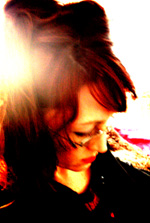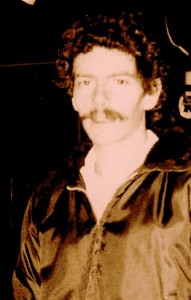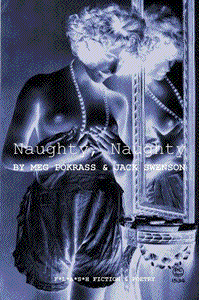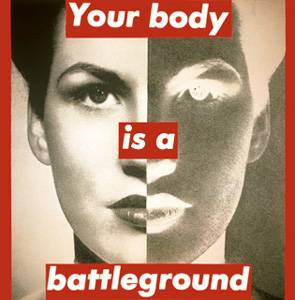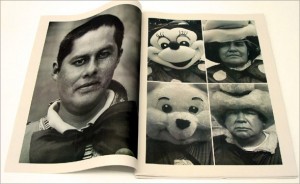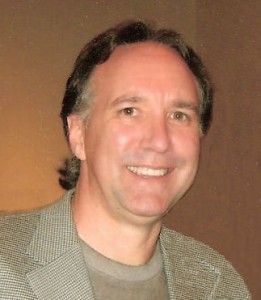 Kevin Morgan Watson is founding editor of Press 53, an independent literary publishing house in Winston-Salem, NC. As a publisher, Kevin has worked with writers ranging from first-time published authors to winners of the National Book Award and the Pulitzer Prize. As a writer, his short stories, poetry, and essays have appeared in numerous publications. He also serves as an advisor for short story adaptation to screenplay with the screenwriting faculty at the University of North Carolina School of the Arts, School of Filmmaking. Part of Kevin’s mission at Press 53 is to help usher in a short story renaissance by ignoring market trends and publishing short story collections he loves while encouraging other small presses to do the same.
Kevin Morgan Watson is founding editor of Press 53, an independent literary publishing house in Winston-Salem, NC. As a publisher, Kevin has worked with writers ranging from first-time published authors to winners of the National Book Award and the Pulitzer Prize. As a writer, his short stories, poetry, and essays have appeared in numerous publications. He also serves as an advisor for short story adaptation to screenplay with the screenwriting faculty at the University of North Carolina School of the Arts, School of Filmmaking. Part of Kevin’s mission at Press 53 is to help usher in a short story renaissance by ignoring market trends and publishing short story collections he loves while encouraging other small presses to do the same.
Q (Meg Pokrass): Press 53 is all about great news these days! Tell us what is happening?
It appears that the Universe has aligned with Press 53. We’ve been fortunate that great things continue to come our way. When I started this little press in October of 2005, I promised myself that I would ignore the market and only publish writing that I loved, and then set out to find readers who agreed with me. The motivation behind this was the belief that I’m nothing special, just an average reader and writer who is in tune with thousands of other readers and writers; that what I like to read is good, solid storytelling that tests my boundaries and beliefs without hitting me over the head, and that lots of other folks like the same thing. So that’s what I put out there, and like my own Field of Dreams, readers and writers are finding their way to Press 53.
Since last September, we’ve earned three gold medals, and a few finalist and honorable mentions for our books. That’s nice recognition. But more importantly, in these tough economic times, our sales continue to grow, meaning we are finding new readers all the time, many of whom are returning to buy books by writers who are new to them. I love short stories, so I publish at least six short story collections each year. We have an impressive list of short story authors with us, and we’re gaining a nice reputation for publishing quality story collections.
I also write a little poetry, but I don’t feel qualified to help poets edit their collections, so I brought on Tom Lombardo as poetry editor. And recently, I brought on Robin Miura as my novel and memoir editor. This leaves me time to find and edit the short story collections, manage our annual Press 53 Open Awards writing contest, and handle everything else. I’ll be hiring some office help next. I need to free up more time for myself to read and catch up with submissions. Our plate is full and I hate turning away great work.
Tell us about your move to town and what is happening with your new space!
I’ve been running Press 53 from my home, but on my dream board I have a photo of a brick building in an urban location with Press 53 over one window and The Writers Loft over the other window. It’s been my goal to create a space where writers can meet for support, learning, and celebration. Earlier this year, I was approached by Community Arts Café, a local champion of the arts, about representing the literary arts in a downtown arts development center. They offered me affordable space for the Press 53 office, plus space for the Press 53 Center for Creative Writing, where we have writing cubbies for rent, space for workshops and classes, and free meeting space for writing groups. There is a large reception area with comfortable seating, and a lending library with dozens of books and magazines, including lots of literary journals. Plus the Community Arts Café facility has several other rooms we can use for book launches and celebrations. Like so many other wonderful things, this seemed to drop right in my lap. It’s a beautiful space and I’m really happy to finally be moved in and have my house back.
Please talk about Prime Number, Press 53’s literary magazine. The first issue was dynamite! What do you envision? How would you like to see the magazine grow?
Clifford Garstang brought me this idea. Cliff is the author of one of our gold medal-winning books, In an Uncharted Country. Last November I traveled around North Carolina with Cliff and Mary Akers, who is one of our other gold medal-winning authors (Women Up On Blocks), and while driving back to Winston-Salem, Cliff asked if I had ever thought of publishing a literary magazine. I told him I had thought of it, but that I didn’t have the time; then I asked if he was interested in editing the magazine if Press 53 published it. He didn’t hesitate and said yes. So we talked about it for a couple of months, coming up with ideas that would make it unique, including a name. I mentioned that 53 (my lucky number) is a prime number, a number that is only divisible by itself and the number 1. I gave him a few more facts about the number 53, like it’s the atomic number for iodine, which is represented on the Periodic Table with the letter I, as in “individual,” and so on. He liked that, and he came up with Prime Number Magazine publishing distinctive poetry and prose.
My role is solely as publisher and sounding board. It’s an online quarterly, our first issue being No. 2, since 1 isn’t a prime number. As Cliff says, “Yes, it’s a gimmick, but we like it!” Cliff handles the management of the magazine and is prose editor. Valerie Nieman, who wrote the first poetry collection we published (Wake Wake Wake) and has an new novel coming out with us this November (Blood Clay) is the poetry editor. We all worked together on the design and layout. We decided that Prime Number would not be used primarily as a platform to promote Press 53 books and authors. While we may feature a Press 53 author from time to time, it is a place for discovering new writing. We also plan to publish a print annual of pieces selected by the editors. One other distinction we offer is Prime Decimals (a completely made up concept, thanks to Cliff), where we will feature new flash fiction and poetry every 13 to 17 days (prime numbers). We’re going to play with the whole prime number idea and have fun with it. And in the process, I’m sure I’ll discover a few future Press 53 authors.
What excites you about the online literary community?
Never before have artists had more tools available to them to reach their audience and create new markets for their work. I find a lot of Press 53’s book cover art online. If I am curious about a writer, I can Google him or her and find plenty, including how active the author is in promoting his or her work, which is important for any small press. What’s really exciting is how easy it is today to find literary magazines. Back in 2001, when I was editing Silver Rose Anthology for a New York City-based arts foundation, very few literary magazine were online. My goal was to read as many short stories as possible that were published during 2001 to find 12 for the Silver Rose Award and publication in the anthology. I read around 1000 stories, most of which required trips to bookstores and libraries to find the print journals and magazines. I found two of the final 12 stories online though, which, at the time, was considered by some writers and editors to be not real publishing. Today, almost all of the literary journals and magazines are online, so writers can easily check out a journal before submitting. Anyone wanting to submit to Press 53 can Google any of our authors and find plenty to read, which will give anyone an idea of the kind of writing I like. Of course, buying a book would be nice, but to find out what kind of writing I publish can be done for free and without burning an ounce of gas. My, how times have changed.
Book bloggers are the new book reviewers. Back in the old days, as far back as three or four years ago, readers relied on reviews in the Sunday paper or in magazines to discover what was new and which authors were creating a buzz. Today, readers can easily find a book blogger with similar tastes and keep up with what they are reading and can become part of the conversation. This is exciting stuff for small presses and their authors. The whole online literary community has replaced the voices of the select few who controlled what was reviewed and talked about and promoted. Readers and writers today can create their own platforms to reach their own audiences. That’s exciting.
How have Facebook, Twitter, GoodReads changed things? How do you feel social media is helping Press 53?
I’ve discovered lots of authors through Facebook, writers who have “friended” me and out of curiosity I end up Googling them and reading some of their work. Press 53 does almost all of its promoting online. I use Facebook a lot to post events, like pre-orders for signed copies of new books and book-launch parties. I’m able to keep our Friends of Press 53 up to date on what’s new and interact with them. Twitter I don’t get. It’s like Facebook Lite, so I just use Facebook. One day I may wake up to some realization about the value of Twitter and slap myself for having ignored it. And if someone out there wants to slap me and wake me up, I’d welcome it. Goodreads seems like a great site for book promotion, and we’ve started giving away signed copies of new books there.
What makes an author stand apart? What do you look for in the selection process?
OK, this is going to sound like New Age stuff, but everything is energy, including writing. Like music, there is melody in words and rhythm in the way those words run together. When a story is working it resonates with me, which is why I may be three pages into a story where it appears nothing much is happening but I want to keep reading, or why I may be two paragraphs into a story and I’m already lost and bored and wondering why I should keep reading. I can’t tell anyone the formula for what works for me outside of the usual things, like natural dialogue, appealing to my senses (especially taste and smell), letting me see where the story takes place, allowing me to walk with the characters and be a witness to the story, having the story surprise me and open my eyes to a new way of seeing something. All the stuff we learn in craft books and in workshops. But it’s like a question I once heard at a songwriting workshop in Nashville when some poor soul asked Ted Harris, “How do you write a hit song?” Really, someone asked him this. Ted, who has written numerous number 1 hits, said, “Well, you take about 100 words and you arrange them so they equal one-hundred thousand dollars.” So it’s all in how those words are arranged that make the story either resonate or lie flat on the page.
Since I can only publish six to eight short story collections a year, I have to pass on a story collection now and then that does resonate with me. And I’ve missed a few because I got around to reading them too late. That’s the frustrating part of this business. And I would never expect a writer to wait on me, which is why I encourage simultaneous submissions.
Tell us about Kevin Morgan Watson apart from Press 53.
I thought I was the only Kevin Watson in the world until I discovered another Kevin Watson writing religious books and another writing political books, two subjects I try hard to stay away from. So I added my middle name, which is also my mother’s maiden name. The Morgans moved to southeast Missouri around 150 years ago from an area that used to be called The Morgan District, a large expanse of territory running along the Appalachian Mountains from Tennessee and North Carolina up through West Virginia and Kentucky. Robert Morgan told me about The Morgan District when I mentioned to him that we might be related since my family was from the area close to where he grew up. He also told me that Morgan is the second most common name in Wales, and that The Morgan District got its name from the overwhelming number of Morgans who lived in that area years ago. So you see, there’s more proof that I’m just a regular guy.
I’ve been married to the same lovely woman for 21 years and we’ve never had an argument, which is entirely her fault. I’ve tried to argue, but she’ll have none of it. She’ll let me vent and then say one little thing that shuts me off and cools me down and makes me realize if I keep venting I’ll either feel like an ass or be an ass. It’s an amazing quality. We have three children, which is why I became an editor and then a publisher. Writing in the house was impossible with all the screaming and running and general mayhem. But I do love the editing process, and I love designing books, so it’s all wonderful. We also have three cats, thanks to the kids bringing home a pregnant cat. Momma kitty stays outside and refuses to come in unless it’s freezing, so three of her kittens, which I fell in love with before we could find them homes, stay primarily indoors. And our youngest child, Leslie, has been after us for two years for pet rats. We thought she would give up the fight after a couple of weeks, but she’s as stubborn as her father, so we’re currently at a stand-off (but I’m beginning to soften).
My favorite movie is To Kill a Mockingbird. Some of my other favorites are The Outlaw Josey Wales; Dangerous Beauty; October Sky; The Sixth Sense; The Usual Suspects; Man Without a Face; and Groundhog Day. My taste is music varies, but I can honestly say that commercial music today, including country music, which I spent a few years writing in Nashville, bores me to the point of heartburn. Give me Neil Young, John Prine, Lucy Kaplanski, Shawn Colvin, Guy Clark, Counting Crows, Kevin Welch, and any number of new indie artists and bands. I also love flamenco guitar, and the acoustic guitar work of Andy McKee.
Besides being a music snob, I’m also a barbecue snob. I grew up in Kansas City, Missouri, where anything that moved was fair game for barbecuing. Here in North Carolina, where I have lived for almost 13 years and am proud to call home, I run into folks who think if it’s not pork, it’s not barbecue, like the way some folks in Texas say about beef. Well, folks, it’s all good, so long as whatever you are eating is slow cooked over hardwood or charcoal while rubbed and slathered in a thick, spicy sauce and not that clear, vinegar-based stuff they pour over their barbecue in Tennessee. Now that’s just plain wrong.
The Fictionaut Five is our ongoing series of interviews with Fictionaut authors. Every Wednesday, Meg Pokrass asks a writer five (or more) questions. Meg is an editor at Smokelong Quarterly, and her stories and poems have been published widely. She blogs at http://megpokrass.com.
